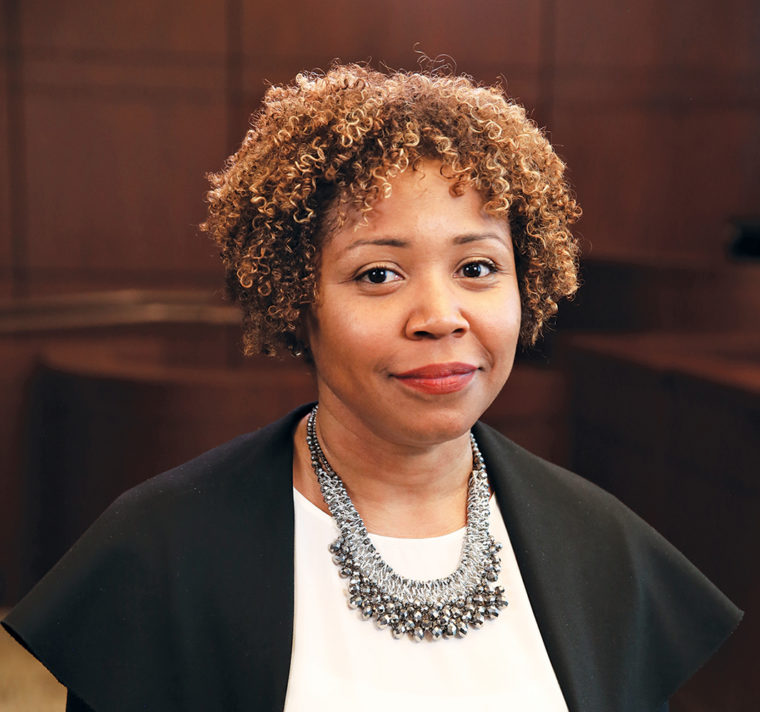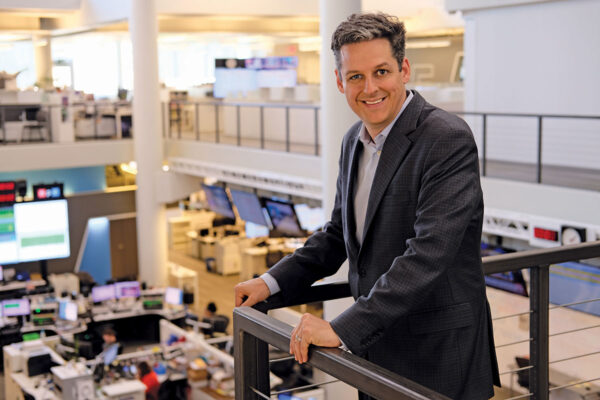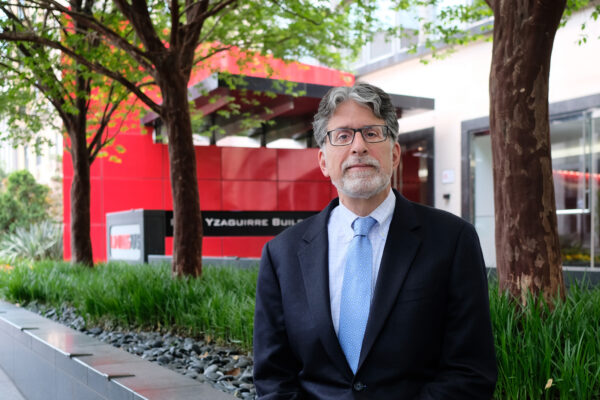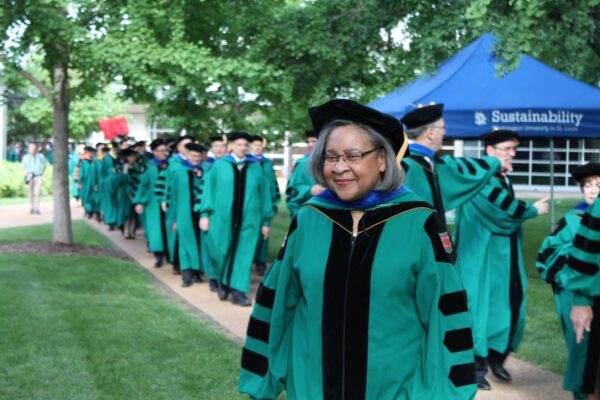When she was 10, soldiers with machine guns stormed Shirley Padmore Mensah’s home in Monrovia, Liberia, and arrested her father. She watched him go, unsure if she’d ever see him again. It was April 1980, and the Liberian government had been overthrown. The military had rounded up the president and his cabinet and shot them dead on a beach. Mensah’s maternal grandfather, a legislator, was arrested and died while in custody. Her uncle, a former government employee, hid on Mensah’s family’s roof while the military searched for him. Mensah’s family was terrified that he would be found and they might be executed for hiding him.
“It was just lawlessness,” recalls the Hon. Shirley Padmore Mensah. Fortunately, her father returned home after a few days and her uncle wasn’t discovered. But the family knew they had to flee.
They settled in Wilmington, Delaware, and throughout her childhood, Mensah developed a deep appreciation for the rule of law. Her father, who had been a lawyer and entrepreneur in Liberia, taught her about the role that law plays in society and told her that due to her inquisitiveness she’d make a good lawyer.
Her undergraduate studies in political science at the University of Pennsylvania only deepened her respect for the law. “I started to appreciate the importance of a legal and political structure that allowed space for people to have a voice,” she says.
Mensah always knew she’d go to law school. She applied to Washington University in part because she liked the campus, but she was shocked to see the law school, which was then in Mudd Hall, on a campus tour. Yet thanks to a scholarship and an engaged admissions team, Mensah matriculated at WashU in 1992.
Her first year was transformative. In addition to learning how to think and write like a lawyer in her courses, Mensah took advantage of the minority clerkship program, which placed minority 1L students in firms that were trying to improve their diversity. Mensah was placed in the St. Louis law firm of Husch Eppenberger, now Husch Blackwell LLP.
“I just assumed I wouldn’t like a large law firm,” she says. “I had heard all these horror stories, but the people at Husch were really fun, really smart, super-aggressive lawyers.”
She remembers being asked to turn a research memo she wrote into a motion for summary judgment. “I was like, ‘What? I’m a first-year law student!’” she remembers. “I loved it, though. I felt like, ‘Wow, this is it.’”
At the end of the summer, Mensah was offered a permanent job when she finished law school and another clerkship the following summer. And her summer of experience in litigation was apparent in law school. She recalls making an argument in a course on product liability.
“The professor turns around and says, ‘Miss Padmore, that’s an argument for the plaintiff!’ And I’m like, ‘I know!’” Mensah says with a laugh.
After graduation, Mensah worked at Husch Blackwell for 17 years, during which she made partner, oversaw recruitment efforts and became one of St. Louis’ top trial lawyers in many areas, including construction, general business and product liability.
Mensah talks about wrestling with points of law, writing depositions and interviewing witnesses with excitement. It’s not surprising that she enjoyed the long hours and going to trial. “Litigation was my thing,” she says.
But when an opportunity arose for her to be a magistrate judge, she went for it — and she has been sitting on the other side of the bench since 2012. The transition has been surprisingly easy.
“Being neutral really suits my personality,” she says. “I have the freedom to apply the law in a way that I think is right and fair.”
Mensah was also appointed to the federal judiciary defender services committee. And she was awarded a 2018 Distinguished Law Alumni Award along with her law scholarship provider Donald Sher, whom she met at a scholarship dinner when she was a 1L. “The dinner provided a great opportunity to say ‘thank you,’” she says.
“Being a public servant is a really rewarding job. It’s a real privilege, and I’m very grateful.”



